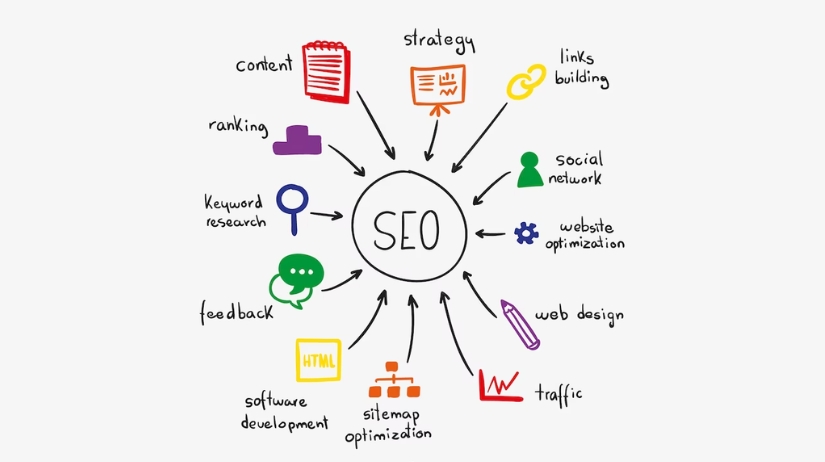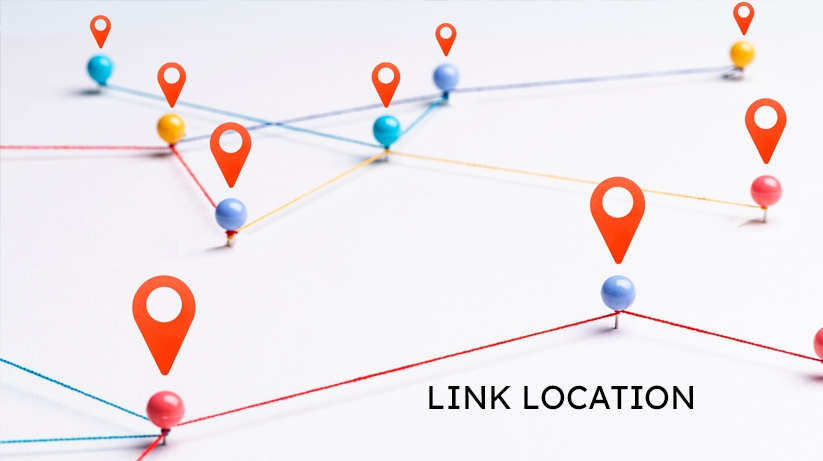
Reciprocal Links: Building Mutually Beneficial Connections for Online Success

In the dynamic SEO world, establishing strong connections and partnerships is essential for enhancing online visibility and driving organic traffic to your website. Reciprocal links, or mutual or two-way links, are crucial in building these connections. This blog post will explore reciprocal links and how they can benefit your digital marketing and SEO efforts.
Understanding Reciprocal Links:
Reciprocal links, or mutual or two-way links, are an exchange arrangement between two websites. In this symbiotic relationship, each website agrees to link to the other, creating a mutual connection and benefiting both parties. Reciprocal links are often found on dedicated "partners" or "resources" pages, where websites showcase their network of interconnected sites within a specific industry or niche.
The concept behind reciprocal links is to leverage each website's existing audience and online presence. By linking to each other, both websites aim to attract relevant traffic and increase their visibility in search engine results. When users navigate one website and encounter a reciprocal link, they can visit the other site, exposing them to new content and potentially expanding their interests.
Reciprocal links can benefit website owners engaged in digital marketing and SEO efforts. Firstly, they can enhance website visibility by tapping into the existing audience of partnering websites.
Additionally, reciprocal links contribute to increased organic traffic. When search engines discover multiple links pointing to a website, they interpret it as a signal of relevance and credibility. As a result, the website's search engine rankings may improve, leading to higher visibility and more organic traffic.
Moreover, reciprocal links help expand reach and engage a wider audience. Business owners can expose their content to a broader range of potential visitors by establishing connections with other websites in the same industry or niche. This exposure increases the chances of user engagement, including exploration of products or services, and may even result in customer conversions.
Reciprocal links also play a role in improving SEO authority. Search engines consider backlinks a factor in determining a website's credibility and relevance. By acquiring reciprocal links from reputable and relevant websites, website owners can demonstrate to search engines that their site is trustworthy and valuable, potentially leading to higher rankings.
It is essential to follow best practices to make the most of reciprocal links. Website owners should prioritize establishing links with relevant and quality websites, ensuring the partnership aligns with their industry or niche. Creating engaging and valuable content is also essential to attract organic, one-way backlinks that search engines highly value. It is crucial to maintain a diverse backlink profile that combines reciprocal links with other types of links to create a natural and balanced linking strategy.
Benefits of Reciprocal Links in Digital Marketing and SEO:
Enhanced Website Visibility: By engaging in reciprocal linking with reputable and relevant websites, you can expand your online presence and increase your website's visibility. Users who navigate those websites and come across your link are likelier to visit your site. This heightened visibility can improve brand recognition and attract more potential visitors.
Increased Organic Traffic: Reciprocal links can boost your website's organic traffic. When search engines discover reciprocal links between your website and others, they perceive it as a validation of your site's credibility and relevance. This results in more organic traffic to your web pages.
Improved SEO Authority: Search engines consider backlinks as a crucial ranking factor. By engaging in reciprocal linking with reputable and authoritative websites within your industry, you signal to search engines that your website positively impacts your SEO authority and potentially leads to higher rankings for targeted keywords.
Expanded Reach and Audience Engagement:
Reciprocal links allow you to tap into the existing audience of the websites you are connected with. When users visit those websites and encounter your link, they are more likely to engage with your content, explore your products or services, and become loyal customers. It helps you reach a broader audience interested in your niche and increase audience engagement.
Relationship Building and Networking: Reciprocal links foster meaningful relationships with other web admins and industry professionals. Establishing connections and collaborating with relevant websites can open doors for further opportunities. This may include guest posting invitations, shared resources, and cooperative marketing efforts, ultimately expanding your digital marketing reach.
It's important to note that reciprocal links offer benefits but should be pursued cautiously and in line with best practices. Prioritize quality and relevance when selecting websites to engage in reciprocal linking with, and aim for a diverse backlink profile that includes other link types. Regularly monitor and update your reciprocal links to remain active and aligned with your website's goals.
Incorporating reciprocal links as part of your overall digital marketing and SEO strategy can improve visibility, increase organic traffic, enhance SEO authority, expand reach, and provide valuable networking opportunities.
Best Practices for Reciprocal Links:
Reciprocal links, or mutual or two-way links, can be valuable for building connections and improving your website's visibility and SEO performance. However, it's crucial to carefully approach reciprocal linking and adhere to best practices to ensure effectiveness.
Here are some fundamental guidelines to follow:
Choose Relevance: When seeking reciprocal linking opportunities, focus on websites about your industry or niche. Links from websites in a similar field will likely bring traffic to your website.
Verify Website Quality: Before entering into a reciprocal linking arrangement, assess the quality and credibility of the websites you plan to exchange links with. Consider domain authority, content quality, user experience, and overall reputation. Linking with reputable websites will enhance your credibility and power in the eyes of search engines.
Establish Clear Linking Guidelines: Communicate your linking guidelines to potential partners. Specify the preferred placement of the reciprocal link, such as on a dedicated "partners" or "resources" page. This ensures consistency and helps maintain a well-organized and user-friendly linking structure.
Create Engaging Content: Producing high-quality and engaging content on your website is crucial for attracting natural and voluntary backlinks. When other web admins find your content valuable, they are likelier to link to it without requiring a reciprocal link. Focus on creating informative, unique, and shareable content that goes with the interests of your target audience.
Prioritise User Experience: Ensure that reciprocal links enhance the user experience on both websites. Links should be relevant and provide additional value to users, guiding them to related and helpful information. Avoid excessive reciprocal linking that may confuse or overwhelm visitors.
Monitor Link Quality:
Regularly monitor the quality of reciprocal links you have established.
Check that the links are active and properly functioning.
If you find broken or low-quality links, consider contacting the web admins and requesting updates or removals.
Maintaining a healthy backlink profile is essential for SEO success
Diversify Your Backlink Profile: While reciprocal links can be valuable, it's crucial to maintain a diverse portfolio of backlinks. Combine reciprocal links with other connections, such as one-way inbound links from authoritative sources, social media mentions, and directory listings. A diverse backlink profile appears more natural to search engines and helps mitigate the risk of potential algorithmic penalties.
Build Relationships: Reciprocal linking should not be solely transactional. Take the opportunity to build relationships with other web admins and industry professionals. Engage in meaningful conversations, explore collaboration opportunities, and consider guest posting or sharing resources. These relationships can lead to further organic link opportunities and broader digital marketing partnerships.
By following these practices, you can effectively leverage reciprocal links to enhance your website's visibility, attract targeted traffic, and strengthen your overall SEO strategy. Remember to prioritize relevance, quality, and diversity in your reciprocal linking efforts, and continually monitor and optimize your backlink profile to stay ahead in the competitive online landscape.
Search Engine Optimization
13 Nov 2023 | RachelRelated Post
How Important HTML tags for SEO
26 Jun 2023Latest Post







